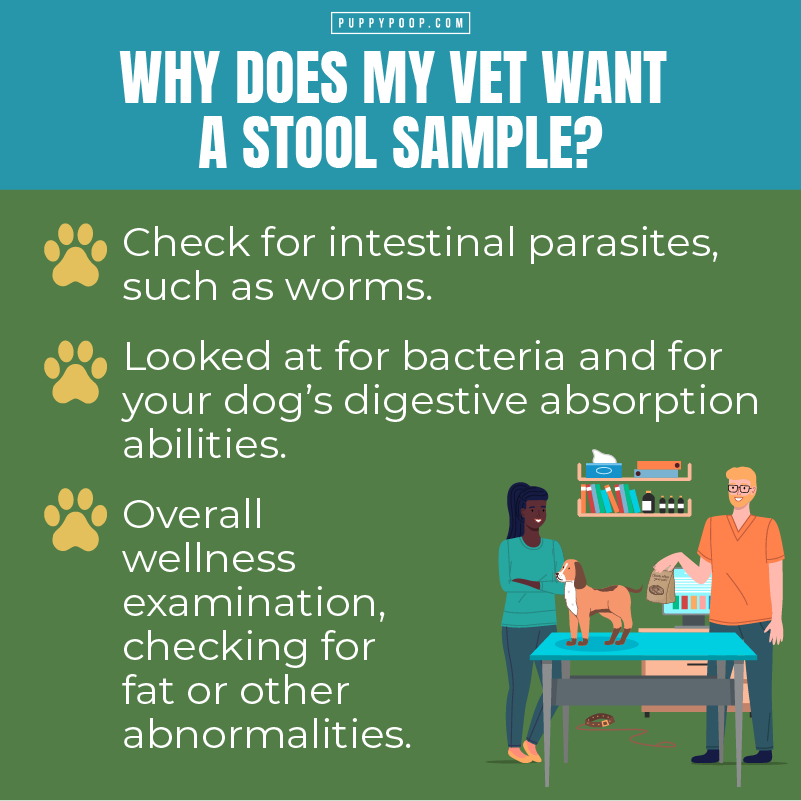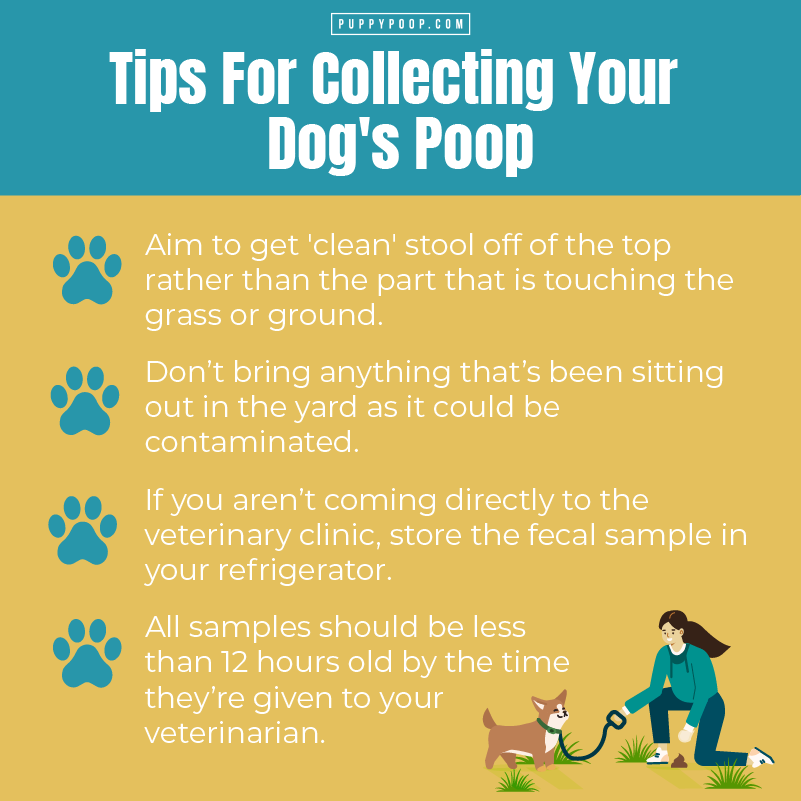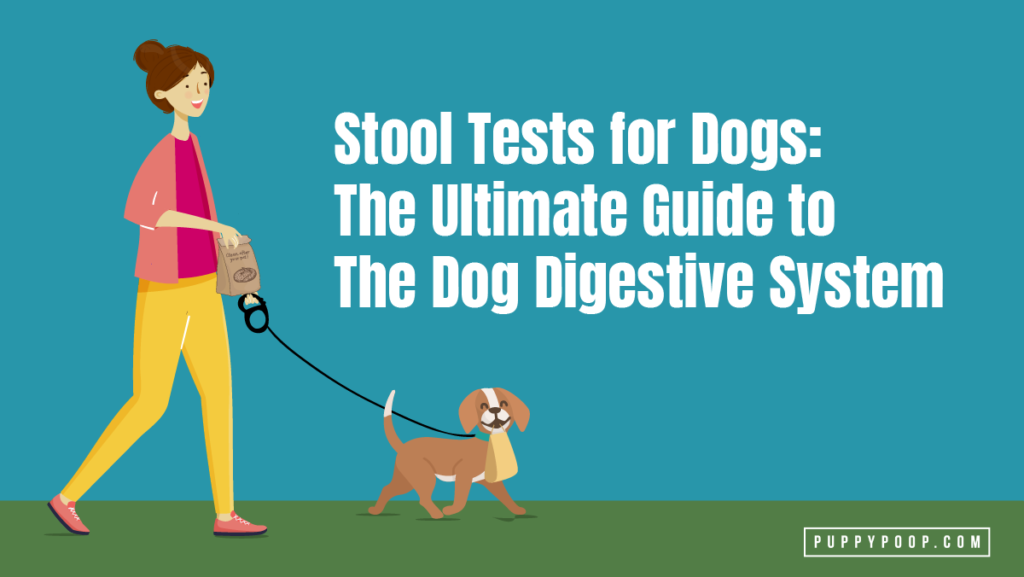Can you bring in a fecal sample? The dog stool sample- perhaps the most dreaded veterinary request of dog parents everywhere. What most people view as a veterinarian’s torturous request is actually an eye-opening diagnostic tool for all things digestive as well as the general health of your dog. Your vet can perform different stool tests for dogs to determine your pets health. A stool sample is a window into your dog’s gut health.

Why Does My Vet Want A Dog Stool Sample?
A stool, or fecal, sample is pretty straight forward. It’s a sample of your dog’s poop. It is also an important indicator of your dog’s health. Stool samples are mainly used to check for intestinal parasites, such as worms in dogs. They can also be looked at for bacteria, especially abnormal growth of such, and for your dog’s digestive absorption abilities. Some examples? In cases of diarrhea, the bad bugs salmonella and giardia can be tested for to determine the best route for treatment. Your dog’s pancreas could need further evaluation if there were high amounts of fat found in the feces.
Most veterinarians ask that you bring in a stool sample for your dog at the time of their annual wellness check. If you have a puppy, your veterinarian will recommend testing twice per year. This is also applicable if you live in areas with high intestinal parasite prevalence or have a dog who regularly socializes with other dogs.
Veterinarians will also request a fecal sample anytime you suspect dog digestive issues. If you notice your dog has symptoms like diarrhea, vomiting, or lack of appetite, a fecal test will likely be your next step for dog digestion help.
What Are the Different Types of Stool Tests For Dogs?
There’s much more to fecal testing than looking at dog stool. In fact, there are four different stool tests for dogs at a veterinarian’s disposal. Each fecal test is unique so it’s important to recognize the differences:
Fecal Float
Veterinarians most commonly use the fecal float. A fecal float involves mixing the feces with a special solution. Parasite eggs and protozoa, if present, float to the top. Your vet will then trap them on a slide and view the sample under a microscope. This method is not always 100% accurate. There may be error in the waiting period or mixing technique that prevents the eggs from floating. Even so, it can work very well for severe parasitic infestations.
Fecal Smear
You guessed it! A fecal smear involves smearing a small amount of feces on a microscope slide. Veterinarians use this test when there isn’t enough stool sample for a fecal float or when they are looking for fat and cellular material. It’s fairly unreliable and inaccurate for parasite detection.
Fecal Centrifugation
A fecal centrifugation, like a fecal float, mixes a bit of stool with a special solution. The centrifuge spins more rapidly than mixing by hand. The heavy particles sink to the bottom of the tube, allowing any tiny parasite eggs to float to the top. The parasite eggs will separate to the top and be inspected under the microscope.
Fecal Antigen
Your vet may order a fecal antigen test if single-cell parasites like giardia are believed to be present.
After expullsion from the stool, these parasites usually die in 30 minutes. This test may also be referred to as a fecal ELISA test or Diarrhea Panel. Because many giardia infections are asymptomatic, dogs may have either acute, chronic, or intermittent diarrhea that can be confusing for their owners.
Dysbiosis (Dog Microbiome) Testing
A dysbiosis test is a newcomer to veterinary medicine. You may have heard of the dog microbiome – it’s that secret society of microbes that lives in a dog’s (and your!) digestive tract that are responsible for proper dog gut health. A dog microbiome test sequences the DNA of all the microbes found in the stool, both good and bad, to see what your dog’s gut is populated with. Dysbiosis tests help to identify pathogens and parasites that other fecal tests can’t. It can also determine if those bugs are resistant to antibiotics. While scientists and veterinarians are still working to more completely decipher the dog microbiome test results, a dysbiosis test is a great example of how scientists are starting to translate this DNA data into actionable dog gut health insights.
How Do I Collect a Dog Stool Sample?
Collecting a fecal sample may be easier than you think. Some veterinarians will provide you with a special container to collect your sample. If your vet does not give you a special container, you can use a plastic bag to collect stool samples.
To collect a sample, you don’t need the whole pile of dog poop. A segment or two is enough for fecal tests. Don’t worry –
- Place a plastic bag over your hand and pick up the stool like you would before disposing of it.
- Place it in the provided container or into another poop bag and seal it.

When it comes to fecal samples, the fresher the better. As soon as your dog goes try to drop off at your veterinary clinic as soon as possible. A few special tips:
- For best results, aim to get ‘clean’ stool off of the top rather than the part that is touching the grass or ground.
- Don’t bring anything that’s been sitting out in the yard as it could be contaminated with environmental pollens, fungi, etc.
- If you aren’t going directly to the veterinary clinic within an hour or two, store the fecal sample in your refrigerator.
- The stool samples you give to your veterinarian should be less than 12 hours old.
Next time you get a request for a fecal sample don’t be shy, you’re a hero. Stool tests for dogs are critical diagnostic tools for helping your dog live a healthy, happy life. Remember the dog digestive system is the epicenter of overall health so scoop the poop to avoid dog digestive issues!
Get the DIG Labs App
Download the free DIG Labs Digestive Health Tracker to get personalized insights and recommendations for your dog based on their stool.

